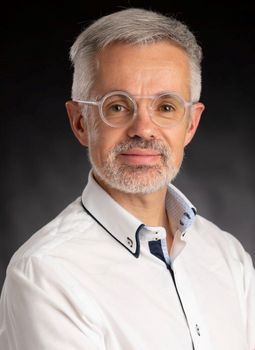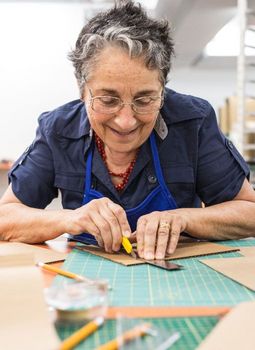
translated by CREAT author: udemnouvelles
source: https://nouvelles.umontreal.ca/article/2023/10/04/et-si-les-musees-jouaient-un-role-dans-la-promotion-de-la-sante-physique-des-aines/
A study led by Professor Olivier Beauchet of UdeM’s Faculty of Medicine shows that museums could play a role in maintaining the physical health of the elderly.
Older people who take part in creative workshops in a museum move more than those who don’t. It’s a La Palice truth, don’t you think?
This would be the case if the increase in physical activity were a direct result of taking part in the workshop. But that’s not quite the case: the results of a pilot project led by geriatrician and neurologist Olivier Beauchet show that the increase in the number of steps takes place outside the hours when participants take part in the workshops.
Professor in the Department of Medicine at the Université de Montréal and researcher at the Institut universitaire de gériatrie de Montréal, Dr. Beauchet has an explanation for the phenomenon…
Proving that art is good for you

Active for over 10 years in the field of research into the benefits of art for seniors, Olivier Beauchet has been working since 2015 on the effects of art on health in partnership with the Musée des Beaux-Arts de Montréal (MBAM). Among other things, this partnership led to an initial pilot project with 209 people over 65 who were taking part in the Les beaux jeudis art workshops then offered by the Museum.
“The project was born of the idea that art does good, but you have to prove it”, says the geriatrician. “This first project showed that practicing visual arts at the Museum improved seniors’ physical health, but the data was based on a self-evaluation questionnaire, which includes an element of subjectivity.”
In 2019, Dr. Beauchet and his team analyzed data on 53 individuals aged 71 to 78 in the initial study group. These individuals wore a pedometer watch that measured the number of steps they took daily over a three-month period. This sub-group was divided in two: half attended the Thursday workshops at the MBAM, while the other half, the control group, did not.
A big step for seniors’ health!
Between the beginning of the experiment and the end, at the end of three months, members of the control group took 527 more steps per day on average, an increase of 10%. The Beaux Jeudis participants, on the other hand, took an average of 3,190 more steps daily, an increase of 42%!
According to the results of the study, published in the journal European Geriatric Medicine, this trend was also observable during active hours of the day, as well as during “inactive” or resting hours, such as the evening.
“The literature indicates that you need to take around 7,000 steps a day to notice a difference in physical health, and the people who took part in the art workshops swung in the right direction, going from an average of 6,817 steps a day to over 10,000: that’s a significant and very large variation,” enthuses Dr. Beauchet.
In fact, the 3190 additional daily steps are equivalent to a distance of around 1.3 km per day!
An effect that extends beyond the walls of the Museum

The data collected by the pedometer-watches reveal that the increase in the number of steps taken by workshop participants is not exclusively linked to going to the Museum: seniors who attended the workshops also walked more to take part in other activities at the MBAM.
“Going to the Museum contributed to the increase in the number of steps in the active group, but not enough to explain the entire difference between the two groups,” explains Dr. Beauchet. Our hypothesis is that activity at the Museum promotes social interaction beyond the activity itself, making participants more physically active.”
This hypothesis is based on two assertions. Knowing that better physical health contributes to mental health, it is plausible that better mental health encourages participants to be more physically active. Similarly, the workshops offered by the Museum are group activities that enable people to interact with each other, thus breaking down social isolation – which is associated with a sedentary lifestyle.
Overall, the art workshops taken at the Museum “make people more socially interactive, and we observe an improvement in their social health”, according to the professor-researcher.
“Although our results must be interpreted with caution, since they are based on a small number of subjects, they tend to demonstrate that participation in fine arts activities contributes to better physical health, and that museums could play a role in health promotion and disease prevention among the elderly,” concludes Olivier Beauchet.

 Arts and Health
Arts and Health